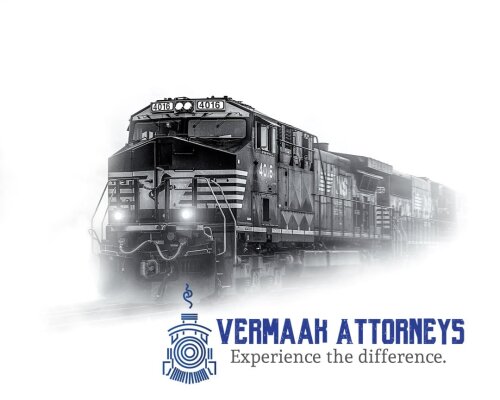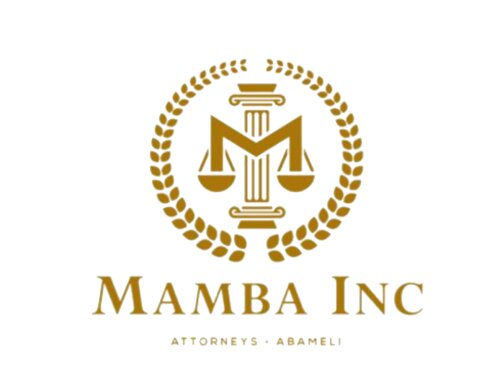Best Restructuring & Insolvency Lawyers in Centurion
Share your needs with us, get contacted by law firms.
Free. Takes 2 min.
List of the best lawyers in Centurion, South Africa
South Africa Restructuring & Insolvency Legal Articles
Browse our 2 legal articles about Restructuring & Insolvency in South Africa written by expert lawyers.
- Cross-Border Insolvency: Protecting Assets in South Africa
- Legal Framework: South Africa governs cross-border insolvency through the Cross-Border Insolvency Act 42 of 2000, which incorporates the UNCITRAL Model Law. Mandatory Recognition: Foreign liquidators or "representatives" have no standing to deal with South African assets until they obtain a formal recognition order from a South African High Court. COMI... Read more →
- Business Rescue Proceedings in South Africa for Directors
- Business rescue is a formal rehabilitation process designed to save "financially distressed" companies from liquidation. A general moratorium is triggered immediately, providing legal protection against creditor claims and asset seizures. The Business Rescue Practitioner (BRP) takes full management control of the company, effectively displacing the board's autonomous authority. Directors face... Read more →
About Restructuring & Insolvency Law in Centurion, South Africa
Restructuring and insolvency law in Centurion is a specialized area of legal practice dedicated to assisting individuals, businesses, and creditors facing financial distress. Whether the scenario involves corporate restructuring to restore financial stability, liquidation of assets, or negotiated settlements with creditors, this area of law is intricate and requires sound understanding of the local legal environment. Centurion, a key business hub in Gauteng, is governed by South African national legislation such as the Companies Act 71 of 2008 and the Insolvency Act 24 of 1936, complemented by local business dynamics. Navigating these laws helps both individuals and companies either recover from financial challenges or manage the dissolution process with as little risk as possible.
Why You May Need a Lawyer
Many situations can require legal advice or assistance in restructuring and insolvency, including:
- Personal or business bankruptcy - understanding your rights and obligations
- Business rescue proceedings for struggling companies seeking turnaround solutions
- Voluntary or involuntary liquidation processes
- Negotiating with creditors to restructure or settle debts
- Defending creditors’ interests in insolvency proceedings
- Protecting assets from unlawful or improper sequestration
- Director or management liability issues during insolvency
- Disputes over the distribution of insolvent estates
- Advice on compliance with South African restructuring laws to avoid civil or criminal liability
- Guidance through complex legal documentation and court applications
Each scenario involves strict legal procedures and time frames. Engaging a qualified lawyer can make a significant difference in ensuring your rights are protected and that you receive the best possible outcome.
Local Laws Overview
Centurion falls under the jurisdiction of South African national laws with some practical nuances related to its commercial landscape. The main statutes regulating restructuring and insolvency include:
- Companies Act 71 of 2008: Introduces business rescue proceedings, allowing financially distressed companies to survive and restructure under the supervision of a business rescue practitioner.
- Insolvency Act 24 of 1936: Governs the procedures for sequestration of individuals (personal insolvency) and general liquidation processes for both individuals and juristic persons.
- Close Corporations Act 69 of 1984: Applies to restructuring and liquidation of close corporations, with provisions similar to those in company law.
- National Credit Act 34 of 2005: Offers protections for over-indebted consumers and regulates debt review processes.
Centurion courts, especially the High Court in Pretoria, have jurisdiction over insolvency matters. Local business support organizations and practitioners often offer early intervention services when financial risk emerges. It is crucial to understand that directors and members of companies can face personal liability if they act recklessly or dishonestly in the face of business insolvency.
Frequently Asked Questions
What is the difference between business rescue and liquidation?
Business rescue aims to restore a company’s solvency and operations under the supervision of a business rescue practitioner, whereas liquidation involves winding up the company’s affairs and selling assets to pay creditors. Business rescue is designed to save companies, while liquidation is a terminal process.
Who can apply for insolvency or liquidation?
Individuals, companies, creditors, or even the court itself in certain circumstances can initiate insolvency or liquidation proceedings. It requires sufficient evidence that the debtor cannot pay their debts as they become due.
What happens to employees during restructuring or insolvency?
Employees’ rights are protected under labour laws. In business rescue, employment contracts continue unless suspended or changed by agreement. In liquidation, employees typically become preferential creditors regarding outstanding salaries or benefits.
What is sequestration?
Sequestration is a legal process where a court declares an individual insolvent. Their estate is then handed over to a trustee to liquidate assets and pay creditors.
Can I stop legal actions from creditors during business rescue?
Yes. During business rescue proceedings, a legal moratorium is placed on claims against the company, which temporarily halts enforcement actions by creditors.
How are creditors paid in insolvency?
Creditors are paid in an order of preference: secured creditors first, followed by preferential creditors (like employees and SARS), and finally, concurrent unsecured creditors. Payment depends on available assets.
What are director or member responsibilities during insolvency?
Directors and members must act honestly and avoid prejudicing creditors. If they knowingly allow the company to trade while insolvent, they may face personal liability or criminal sanctions.
Are there alternatives to formal liquidation or sequestration?
Yes. Informal debt restructuring, settlement with creditors, and legal schemes of arrangement are alternatives to formal processes, provided creditors agree.
How long does the liquidation process take?
The duration varies depending on the assets and number of creditors involved, but it can range from several months to a few years for complex estates.
Do I need to disclose all my assets during insolvency proceedings?
Yes. Full disclosure is legally required. Concealing assets is a criminal offense and can result in prosecution and failure to achieve debt relief.
Additional Resources
Several resources can assist those navigating restructuring and insolvency in Centurion:
- South African Department of Justice and Constitutional Development - for forms and information on insolvency procedures
- Companies and Intellectual Property Commission (CIPC) - for business rescue filings and legal guidance
- South African Restructuring and Insolvency Practitioners Association (SARIPA) - to find accredited professionals
- Law Society of South Africa or Gauteng Provincial Law Society - for lawyer referrals
- Credit Ombud and National Credit Regulator - for debt review and consumer credit issues
- Local community advice offices in Centurion for basic legal support and information
Next Steps
If you are considering restructuring, facing potential insolvency, or want to protect your interests as a creditor in Centurion, the best approach is:
- Assess your financial position realistically and gather your financial records
- Contact a legal professional with experience in restructuring and insolvency law
- Prepare a list of questions about your specific situation
- Discuss all available options, including alternatives to formal proceedings
- Act promptly to avoid unnecessary losses or legal risks
Timely and informed action can open new possibilities for recovery or minimize the negative impact of insolvency. Professional legal advice ensures your rights are safeguarded through every stage of the process.
Lawzana helps you find the best lawyers and law firms in Centurion through a curated and pre-screened list of qualified legal professionals. Our platform offers rankings and detailed profiles of attorneys and law firms, allowing you to compare based on practice areas, including Restructuring & Insolvency, experience, and client feedback.
Each profile includes a description of the firm's areas of practice, client reviews, team members and partners, year of establishment, spoken languages, office locations, contact information, social media presence, and any published articles or resources. Most firms on our platform speak English and are experienced in both local and international legal matters.
Get a quote from top-rated law firms in Centurion, South Africa — quickly, securely, and without unnecessary hassle.
Disclaimer:
The information provided on this page is for general informational purposes only and does not constitute legal advice. While we strive to ensure the accuracy and relevance of the content, legal information may change over time, and interpretations of the law can vary. You should always consult with a qualified legal professional for advice specific to your situation.
We disclaim all liability for actions taken or not taken based on the content of this page. If you believe any information is incorrect or outdated, please contact us, and we will review and update it where appropriate.














